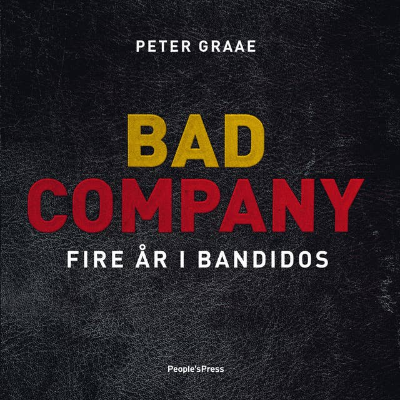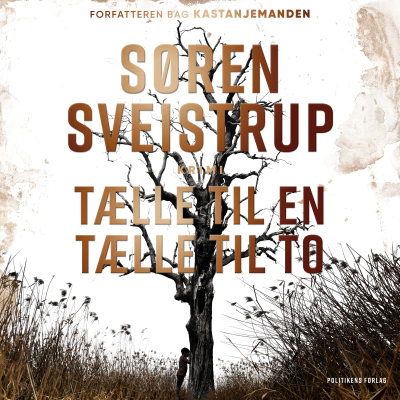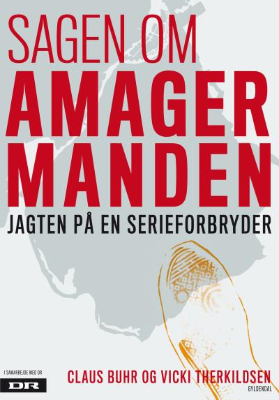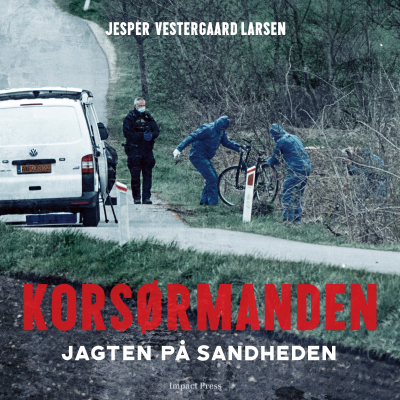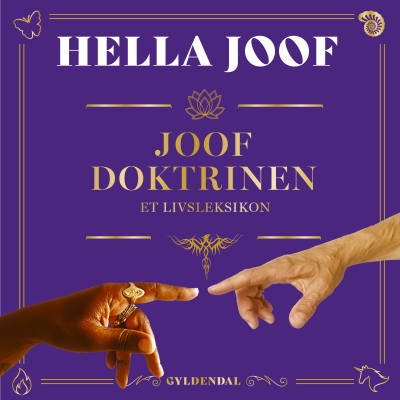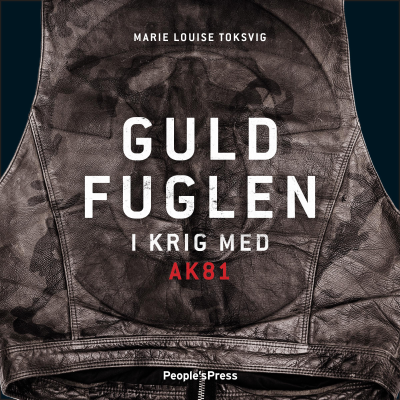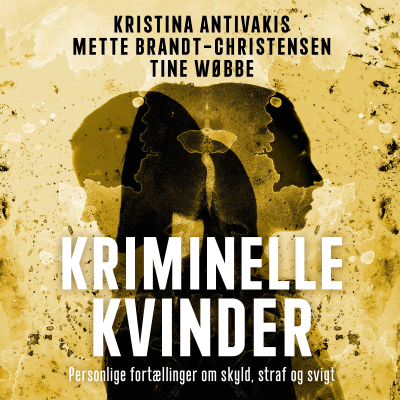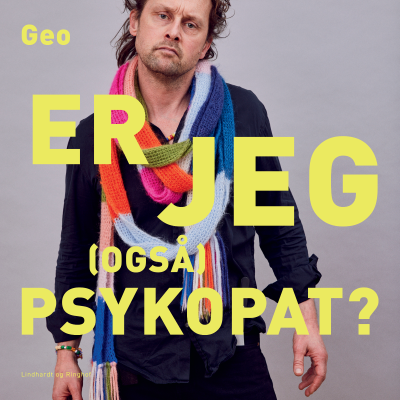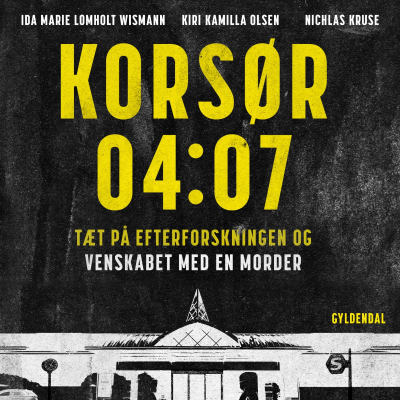Emancipation Podcast Station
Podcast af The EmancipationPodcastStation
The Emancipation Podcast Station is a history retelling through the eyes of students at Epic Charter School. Join us as we discuss everything from Pre-America, to the Internet Age!
Prøv gratis i 7 dage
99,00 kr. / måned efter prøveperiode.Ingen binding.
Alle episoder
28 episoderCountries Skylar - United States - The United States was making very dramatic changes in the 1920’s. For the first time in forever people were actually living in bigger Cities rather than living on farms in the middle of nowhere. The united states worth doubled. A lot of people were kind of confused at first on what was happening, but it ended up being a pretty cool time for the united states. Gabe - Russia - in the early 1920s russia had a civil war which put the bolshevik party into leadership and they made the chaka which then changed names a couple times and turned into the KGB and then soon the bolshevik was renamed to the russian communist party and right after the USSR was created Ella - In the soviet union in 1920 The Soviet Union was formed and Joseph Stalin became the commander in 1922. Also in the 20s, 15 republics in Asia were united. That’s about all. Hunter- Europe- during this time in Europe it was known as the “Golden Twenties” reason being was because of the rapid growth of the European economy due to WW1 and the fact that the Germans had lot of money so repay the rest of the world. Ben - The League of Legends was a group of countries formed after WW1 in order to keep the peace between nations for as long as possible. The League tried to upkeep peace but despite the sheer amount of countries dedicated to the cause, they couldn’t get the bigger countries like the U.S. and Russia to recognize their authority. America and Russia then continued doing what they wanted cause the League of Nations thought if they tried to stop something that was happening, they would get ignored because they weren’t well known, or even worse, get attacked by the nations they were trying to stop. Ultimately though, WW2 complicated things and thats why they ended up disbanding. They might’ve been able to accomplish more if the war didn’t happen. Audrey - In the 1920s Germany was dealing with the consequences of ww1. The Treaty of Versailles required Germany to pay 132 gold marks (US $33 billion) in reparations to cover the damage caused in the war. Even though the war had been over since 1918 there was still a threat of war so another thing in the Treaty of Versailles was the disarmament of the German army. Germany also lost many important portions of its territory to Belgium, France, Poland and Czechoslovakia. 7.. Politics Skylar - Women’s Suffrage - the women’s suffrage was basically women fighting for the right to vote. This wasn’t all they wanted though. Women literally just wanted to be treated the same as men, and have the same rights that they have, which I think is completely fair. These women worked so very hard to get the rights that we, women have today. Gabe - in the 20s there were 3 republican presidents elected consecutively Starting with Harding who died after 3 years of presidency in 1923 he was one of the most popular presidents all the way up until after his death where the teapot dome scandal was revealed where the interior secretary albert fall leased naval oil reserves. Ella - In 1920 on Wall Street, one of the busiest streets, there was a huge explosive, being carried in a horse drawn carriage. 38 people lost their lives and hundreds were injured. At the time it was called the worst terror attack to ever occur in America History. Hunter- during this time sadly there was a lot of political issues…. Causing the rise of major political movements like communism and fascism, and which now adays we are trying to fight both of those movement Ben - “Silent Cal” Coolidge was elected on August 3rd, 1923, sworn into office by his own father following the sudden death of the former president in the middle of the night, forcing them to use a lamp to conduct the oath. Coolidge’s presidency was somewhat dedicated to correcting the former president, Warden Harding’s corruption which rooted itself into the government through companies like the Harding administration. Music/The arts Skylar - Jazz music was known as the first contribution to music. Jazz music was known as “a combination of nervousness, lawlessness, primitive and savage animalism and lasciviousness.” It was a pretty chill type of music, in my opinion. Jazz music was kind of controversial topic, sometimes it was known as a “race record”. Gabe - Along with the jazz broadways (woo woo!) prime years were in 1920s they actually had 50 musicals opening in one season people were paying $3.50 a seat crazy and the art people started digging that surrealist look i find them kinda creepy but hey its that was it back then Ella - Surrealism and Art Deco were two art movements in the 1920s. Surrealism was an art style with a more deep, weird, bizarre and “dreamlike” vibe. A lot of it was based on being unconscious. Art Deco was a style or architecture made with modern and geometric design. Hunter- another type of art during this time was the creation of short films!!! Like Mickey Mouse in……. Steamboat Willie by Walt Disney in 1928 which lead to what we know now as Disney Movies, Disney Pixar, and Walt Disney Pictures. Ben - Photography started being accepted as a valid form of art in the 20’s and new photographers paved the way for many styles that we might see modern photography. As well as more photojournalism in the culture, it also strengthened the power of some movements now that they could be documented more accurately and empathetically. Audrey - The prohibition of alcohol in 1920 led to an underground market of alcohol and the creation of places like speakeasies. They started small but as the Roaring Twenties came to its prime Speakeasies expanded to clubs that featured musicians and dancers. Even though they were illegal speakeasies were very popular. There were other places to go like private clubs, dance clubs, and jazz clubs. People would go to clubs to listen to new music and, since dancing was a huge part of the culture, they would dance the latest dances like the Charlston. 7. Culture Skylar - I’m going to talk about flappers. Flappers were women who were basically outlaws, they didn’t go by the rules for society. They did what they wanted. Usually these women would cut their hair short, either wore dresses or skirts, wore lots of makeup, and really flaunted what they had. They actually drove cars, which a lot of women didn’t do, especially in the 20’s. Gabe - like skylar said this was about the time we went from you cant even see girls ankles you creep to little bit less dressy clothing all this fashion actually came from france they were the first to start dressing differently and then that just carried over to europe and america Ella - cars, radios and other products were being produced faster and at a better price so there were available to almost everyone. This was becoming known as the “machine era”. Also even more Americans were moving from the country to the city. Hunter- another part of this time that i personally like…. Was the first Sports car race on May 26th, 1923. Aka the 24 hours of Le Mans. originally it was supposed to be a three year race in order to declare someone the champion. Little more context was that it was an annual race and every three races one winner would be declared. Ben - As a culture of change arises in America’s roaring twenties, it made a lot more items commonplace, such as the car, or even things like the refrigerator. Much of this culture influenced how America now works today, and the baseline car only cost $260 ($3,300 today) causing more auto-mobile business to flourish. Things like gas stations and motels made travel easier, providing a fun economy as a sort of calm before the storm situation preceding the market crash. Audrey - After the prohibition there was the rise of a culture of criminal celebrities. Bootleggers and gangster bosses would dominate entire cities with their illegal booze, gambling and other things. 7. Technology Skylar - cinema - the 1920’s were the big BOOM for hollywood films. Tons of new movies were being put out. In the early 20’s they were just silent films, but by 1927 they were finally putting sound in most every movie. Southern California was the most popular place for film production. Gabe - electric was getting big the assembly line was one of the big push forwards in technology it allowed us to increase the time stuff was finished and I believe it was used to make the first cars Ella - Radios!!!!!! Radios made stuff cool. They were said to have “knitted the nation together,” They broadcast everything, news, music, politics and even comedy. Radios also helped people advertise. Hunter- The Automatic Watch was an amazing invention that was created by John Harwood, it was the first self-winding watch mechanism. Which lead to what we now know as the wrist watch something that surprisingly is going away due to smart watches. -_- NO Ben - The telephone is getting normalized and the inventors are trying to figure out how to design it. The “candlestick telephone” was the first with a bell shaped speaker to hold up to the ear and a microphone attached to a pole to speak into. By 1927, the Model 102 had reached America after already being popular in Europe. It has a more recognisable curved two-in-one phone that would stay the same over the next few decades, although the base of the machine was constantly changing. 7. Inventions/new things/etc. Skylar - Medicine - Alexander Flemming was a scottish physician who was the creator of penicillin, which was a substance that could kill different types of bacteria. A lot of people ignored him at first, but people finally opened their eyes and seen what a wonderful thing it was. Gabe - let me just name a few of the inventions that came out in 20s like Washing Machine, Radio, Vacuum cleaner, refrigerator, electric Dishwasher, Sunglasses i use all of these things Ella - In 1924, Gustaf Sahlin a sweedish inventor introduced america to a vacuum cleaner, specifically the Electrolux tank vacuum cleaner. The dirt removing efficiency was improved and brooms were forgotten. jK they still had brooms. Hunter- One invention that made a major contribution was the Ford Model T. One reason is because of the fact that the Ford Model T was made specifically for the middle class to allow transportation for a more affordable price Ben - The traffic light was invented after a police officer coming from detroit witnessed multiple car crashes on a day to day basis, his name was William Potts and he created it based off of railroad signals. He then sold it for a whopping $40,000 dollars, which might not sound like much for such an invention but inflation calculates that it would be over $500,000 dollars today. Audrey - The first drive-in restaurant was opened in 1921. It started with a chain of restaurants in texas called the Pig Stand. The first one was on a highway between Dallas and Fort Worth. People would drive up to the restaurant, stay in their car and be greeted by a carhop and they would serve the people burger and fries on a tray that clipped onto the cars window. Later this turned into the drive thru.
B b Write a paragraph about each of the underlined topics. If possible, try to use some of the topics from your lists. European Front skskskskskskskskskSkylar - the invasion of Italy started on September 3rd, 1943. This happened during the early stages of the Italian campaign of World War II. General Sir Harold Alexander was the one who “called” this invasion. His hopes were to take out Italy completely to reduce the shipping capacity that was needed to help the allied forces. *if the next person wants to talk about what actually happened* umbrElla - The invasion took place on mainland Italy. The main “invasion force” happened around Salerno on September 9 on the west coast, while two other operations took place in Calabria and Taranto Emma - After Germany had started invading all the surrounding countries, France was one of the first countries to declare war on Germany. By 1940, they were invaded by the Nazis and quickly fell. After this, they were divided when Germany created what was called Vichy France (because of the city of Vichy which was made capital). They took over the southeastern section of France and installed their own people and military to rule it. The northern and western sections remained free for a couple of years, but later in 1942 were taken by Germany as well. Gabe - from 1943 to 1945 a number of 60,000 allies were killed and 38,000 - 150,000 Germans were killed just in Italy the number of allied casualties were over 320,000 while the german casualties were over 330,000 Italy suffered 200,000 Illyana-The Allied invasion of Italy took place, during World War II (1939-1945). Having driven German and Italian troops from North Africa and Sicily, the Allies decided to invade Italy in September 1943. Landing in Calabria and south of Salerno, British and American forces pushed inland. Audrey - Egypt had no part of the war but the Suez Canal (which is in Egypt) did. It’s a passage between the Mediterranean to the Red Sea and the Indian Ocean. It made it where you wouldn’t have to go all the way around Africa to get from Europe to the Indian Ocean. The British had control of it and obviously wanted to protect it so it would stay theirs but the Axis (Germany, Italy, Japan) would have loved to have it. So in Oct. 1942, the British are able to defeat the Axis and push them back all the way to Tunisia. Pacific Front Ella - The battle of Midway took place in the pacific, in June 1942. It was a naval battle that took place six months after the attack on pearl harbor and one month after the Battle of the Coral Sea. The united states navy defeated a fleet of the Imperial Japanese Navy. A Military historian named John Keegan called it "the most stunning and decisive blow in the history of naval warfare" Emma - Another major battle within the pacific front of the war was the battle of Okinawa. On April 1st of 1945, the allies invaded the Japanese island. For this battle, the United States created the tenth army, which was unlike any others because it had its own Air Force and naval forces. This battle was remembered for the intense level of fighting and was referred to as the “typhoon of steel”. The battle lasted 82 days and didn’t end until June 22. Illyana- The Pacific War, sometimes called the Asia–Pacific War and was the center of World War II that was fought in the Pacific ocean and Asia also Okinawa became the bloodiest battle of the Pacific Audrey - In 1944 the US was taking control of islands close to the Japanese mainland. They used the islands for their B-29 bombers to land and take off because they were way too heavy to land on a carrier. They could land on the island, refuel or get supplies and then take off again. With this, the US could get bombing attacks directly on Japan so they could get closer to the end of the war. Skylar - the Doolittle raid, also known as the Tokyo raid, was named after Colonel Doolittle, who started this raid. What Colonel Doolittle wanted to happen was for the united states to attack japan, and bomb the mainland. Their plan was to send a carrier that could drop the bomb about 1000 miles away from the coast. After that they planned to send 16 B-25 bombers to the mainland of Japan- they actually followed through with their plan, but it didn’t quite go as planned, 14 of the 80 crewmen went MIA or died, but the united states still took this as a win. Gabe - The Pacific Front was the allies against the Japanese and the Japanese wouldn't stop fighting man woman child and its because the generals convinced the people that Americans were evil and we were cannibals going to eat them “talk about fake news” finally after 2 atomic bombs Japanese surrendered and if you have ever read Japanese culture its not in there nature to surrender they actually would have there generals suicide rather than surrender but i heard a story about the Japanese and how when they surrendered to the allies the Americans didn't humiliate them they just treated them as equals and the person telling the story says that even if they were having someone surrender to them they would have humiliated the surrendering country which i think is something amazing about Americans as a whole because weren't there to win we were there to end the conflict Mediterranean Front and Africa Gabe - North Africa didn't go so well for the Britain Italy started deploying motorized divisions along with Germany's Afrika Korps they pushed the British 100 mi east basically into Egypt and after that, the Siege of Tobruk began and they advanced into egypt Illyana- one major resistance was the North African campaign of the Second World War took place in North Africa from 10 June 1940 to 13 May 1943. It included campaigns fought in the Libyan and Egyptian deserts and in Morocco and Algeria, as well as Tunisia Skylar - the Battle of the Mediterranean was the name for the naval campaign that was fought in the Mediterranean Sea. this lasted from the 10th of June 1940 to May 2nd, 1945. This battle was mostly fought between the Italian and the British. They were mainly supported by Poland, Greece, the Netherlands, and Australia. American naval and air units joined in 1942. Audrey - The Holocaust Ella - The holocaust was a time between 1941 and 1945 where around six million European Jews lost their life due to Nazi Germany. Most of them lost their lives from having to do extreme labor or dying in gas chambers, lol brutal Illyana- during the Holocaust all Jews were made to wear a yellow star of David on all of their clothes and if Nazis saw you without it you were brutally beaten most of the time to death. Most of the Jews went into hiding during those four years like Anne Frank who is famous for hiding out in the walls which was made a bunker for her and her family above her father’s bank(also my family has a swastika patch which is cool but at the same time disturbing because we are Christians) Gabe - The german Wehrmacht which was there military became like police but with more power and they participated in the holocaust this consisted of searching homes to find jews or anyone they just didnt like would work take them as prisoners and most likely kill them they also killed pow’s and they allowed scientists to do horrible things to these people Skylar - im going to talk a little bit more about Anne Frank. Anne Frank is one of the most talked-about people during the holocaust. She kept a diary that was published. She talked about her struggles and how scared she was. The diary was written for two years from 1942 to 1944. It has movies and plays to kind of try to show the way she lived. Audrey - During the Holocaust around 6 million Jews were killed. This was ⅔ of the Jews in Europe and 1.5 million of them were children. It wasn’t just the Jews being killed though. Over 10 million civilians were killed, 3 million prisoners of war, and hundreds of thousands of both gypsies and people with disabilities were also killed. Leaders Illyana- The Allied powers were led by Winston Churchill (United Kingdom); Joseph Stalin (Soviet Union); Charles de Gaulle (France); and Franklin D. Roosevelt and Harry S. Truman (United States). The Axis powers were led by Adolf Hitler (Germany), Benito Mussolini (Italy), and Hideki Tojo (Japan) Ella - Adolf Hitler was the leader of the Nazi Party as well as a German politician. His dictatorship lasted from 1933 -1945. He was not nice. He invaded Poland on September 1st 1939 initiating the war and he played a big role in the holocaust. He died by shooting himself in the head. Gabe - Joseph Stalin he was a leader of the soviet union or Russia today he was, in fact, a dictator which means basically whatever he says goes and he says communism is cool so it kinda sucked especially when he decides that he wants to do a great purge and imprison and kill about 700,000 people Skylar - Harry Truman was the president of the United States, he served as Commander in Chief of the Armed Forces. In the two months that he was apart of World War II he dropped two atomic bombs, one on Hiroshima and the second one on Nagasaki, both during warfare to end the war. Aftermath Ella - after World War II ended, millions of people were homeless. Europe's economy had collapsed and most of its industrial infrastructure had been destroyed. This caused the US Secretary of State George Marshall to come up a plan he called “European Recovery Program” later to be known as the “Marshall Plan”. Because of the plan, the US gave $13 billion, ($146 billion in 2018) for the reconstruction of Western Europe. Gabe - there was a lot of people who wanted to execute all germans affiliated with war and America was like nuh-uh we are going to give them a fair trial and there was a lot of them that were killed still but there was quite a few who just got life sentences i mean its better than death Skylar - When World War 2 ended it was the start of a new era. This started the rise of the united states, as well as the soviet union. Other places, like the united kingdom, were struggling through. Their economy had almost completely went to crap. The united states did help them by doing the lend-lease in 1941. Illyana- Europe and Russia were hit the worst in the aftermath of WWII which actually help out us Americans build up our economy without the Europeans butting in. without WWII our world would be completely different
Welcome back to the emancipation podcast station, the place to hear about history researched and retold through the eyes of high school students. This week... Write your name, grade, favorite *event* in history, and ONE item you’d bring on a desert island Emma - 12th, the moon landing, my phone Illyana ~ 10th, Woodstock, An uber Audrey - 10th, the invention of AC, Dora (she has everything in her backpack) im Dora lollllolol Gabriel-10th, my birth, electric guitar Hunter- 9th, a trident, Ella - 10th, the invention of the internet, a cruise ship Skylar - 10th, the hippie movement , i would bring a whole chick fil a restaurant
The Emancipation Proclamation Station Welcome back to the Emancipation podcast station the place to hear about history, researched and retold through the eyes of Middle and High school students Beginning of World War I: Ella - One of the known causes of world war 1 turning into a world war was the alliance system. In 1839, the treaty of London was signed which was where Britain was going to protect the neutrality of Belgium. In 1879 the dual alliance treaty was signed between Germany and Austria-Hungary to protect each other from Russia. Many other alliances were also forming at the time. Ethan - Germany’s navy was starting to get threatening to Britain’s navy. Britain took necessary precautions and signed a document with France called the Entente Cordial, tipping the odds of any war in in their favor. This made Germany realize they were a threat and thought they were being pushed back down, so in turn they became more aggressive and ready for war. Hunter- something that happened about three months before the war was the assassination of: Archduke Franz Ferdinand, on June 28 1914, in Sarajevo, resulting in the July Crisis. How Austria-Hungary responded to this assassination was by issuing an ultimatum to Serbia. Serbia’s reply to the ultimatum didn’t satisfy the Austrians, afterword the two moved to a war footing. Emma - The power that the nations of Germany and Italy possessed at the beginning of the first world war was impressive as it was, but we have to take into account how quickly they had acquired it. Both of these countries, though they had deep cultural roots, were very new as official nations. Both had formed during the Franco-Prussian war barely more than forty years previous but now held power over regions stretching from Africa to east Asia. Audrey - Starting in 1892 there was an alliance between France and Russia and this was the Franco Russian Military Convention. Then in the early 1900s there were a series of agreements between Great Britain France and Russia so that they were in good terms with each other. The alliance between Great Britain France and Russia was the Triple Entente (which means agreements). Skylar - World war I or sometimes known as the Great War started on July 28th, 1914, the war started in Europe. The war was in Africa, the middle east, Pacific islands, indian ocean, China, north and south atlantic oceans, and like i said Europe. They think that this war killed about 16 million people died from direct cause of this war. Gabe - The war started basically because russia wanted to protect serbia and germany wanted to protect austria so when austria went to fight serbia russia went to fight germany Ben - America only began to fight in World War 1 in 1917 ( April 6th to be specific ) with their allies. They had alliances with Russia, Britain, and France at the time, making them a strong force at the time. Led by major General John J. Pershing, 2 million American soldiers fought despite many American citizens wanting the country to stay neutral. Other fronts of World War I: 1.Hunter- One of the many different fronts of the war was the Italian front, the italians were apart of the Triple Alliance during this time, but italy stayed out of the war in 1914 because it claimed that Austria had not been attacked so therefor italy didn’t have to support Austria. In all reality the Italians had a secret agreement with the allies, the allies said that they would give the italians some Austrian territory if they attacked Austria-Hungary. EthanOL - As soon as the war started Japan decided they wanted what the Germans had. Japan was already allied Britain so that they could attack Germany without Britain growing apart from them. They attacked Tsingtao which was a German base in China. This was the first naval/aerial assault ever. They didn’t use exactly aircraft carriers but they did carry their aircrafts. This was called the Siege of Tsingtao which took place in 1914. Ella - Serbia was a very small country with approximately 4.5 million people and an army of around 400,000 soldiers. Almost everyone who could be in the army at the time was in it but it still ended up being destroyed with 60% of the army getting killed, which decreased Serbia's population by 16%. Emma - Italy’s agreements with the Triple Alliance and the Allies were only two of a long series of strategic alliances and deals the nation made on the road to the first world war. Their entry into the Triple Alliance was the first move, which was actually a surprising one, due to the fact that Italy and the Austro-Hungarian empire (another member of the triple alliance) had been enemies previously. Twenty years later, which still under this pact, they made a secret alliance with France. Twelve years after that, the Austro-Hungarian empire entered the war. Only one year later, they entered the treaty of London, an agreement with the Triple entente (england, russia, and france) to fight against their original allies, exit the triple alliance, and declare war on the Austro-Hungarian empire. 5.Skylar - Italy took part in the triple alliance in 1882 when they agreed to be apart of it, they were one of the first countries to take part in it. The whole reason that it was called the triple alliance was because there were three countries in it Italy, Austria-Hungary and Germany. This was kind of a weird mix because they didn’t really like each other but still said they would protect each other if worse comes to worst. Italy was making deals with other places like france in 1902. It was kind of just a lot of back stabbing. Gabe - The Italians helped the allies by attacking austria hungary which is in the triple alliance so basically they made an alliance and were like let's help each other i mean we all don't like each other and would love to see each other destroyed so why not make an alliance really smart and then they dont even help each other its completely useless Ben - Japan played a big part in the fight for the West Pacific Ocean and the Indian Ocean. Most of the reason Japan fought was because they wanted influence in China, but even with the help of Sun Yat-sen, they didn’t have many successes. 8. Western and Eastern fronts of World War I: 1.Hunter- during this time in the war the Germans were fighting two countries, one of which during the western front was France, the Germans had thought if they were to defeat the French (Russia’s ally) in four weeks then they could have an advantage against the Russians in the Eastern front. Ethan- The Germans realized that after the Franco-Prussian War, they were going to be due for another war with France. Germany unified in advance to make sure France had a disadvantage. The humiliation was huge and Germany took Alsace and Lorraine, which were mineral rich and valuable to anyone who controlled it. Germany realized this might hurt them later because France was allied with Russia so if there was war that it’d be on 2 fronts. Ella - The western front in world war 1 was much smaller that the eastern front, but the western front could uses trenches as a defence system since they had less land to defend. The eastern front however, could not use this method due to the land being so wide and them not having enough people to dig them. Even if they were able to dig some, they wouldn't have enough and the western people could easily go around. Emma - In February of the year 1916, the battle of Verdun took place when the Germans launched an attack on the French military at the border between Germany and France. Unlike a lot of the other offensive acts in the war, this battle was not intended to result in the gain of territory for the Germans. The point of this attack was to cause the French to send so many troops, and to cause so many casualties that the French would deplete all their resources and be forced to withdraw from the war. Audrey - In WW1 the Germans were using poison gas as a weapon. Some of the poison gases are chlorine gas, which would immediately cause you to choke to death, phosgene gas, which wouldn’t cause choking and this allowed the gas to get into to lungs and there was a delayed effect, and mustard gas, another that wouldn’t cause choking but it would cause severe blistering which would take you out of the war. Ben - Germany eventually gained peace with Russia on May 3rd, 1918. Russia accomplished this by giving Germany a significant amount of land. This was done under the Bolshevik Government of Russia, which was founded in 1917 after a revolution overthrew the provisional government. Skylar- After the battle of Verdun the british and the French decide to go against a different part of the front, this time close to the Somme river in july of 1916. This battle was the first time they used tanks, it was an extremely bloody battle. 8. Blockades and American entry: Hunter- On May 7, 1915, a German submarine sunk the British ocean liner called Lusitania, ending in the deaths of nearly 1,200 people and that includes 128 Americans. The event strained diplomatic relations between Washington and Berlin, and turned public opinion on Germany. Skylar - the united states had maintained being neutral in the war up until this point, Wilson had just won presidency again because he had kept the US out of the war. Germany was getting pretty desperate so they were going to go back to their idea of unrestricted submarine warfare but they knew if they did that the US would side with their allies. In january of 1917 the Zimmerman Telegram was created by Arthur Zimmerman sent a encoded telegram to mexico, it was encoded because it had to pass through lines that the US controlled. He told them that he knows a way to slow them down. (if someone wants to go off of this that would b awesome) 3.Ethan - In April 1917 the administration had thought about it and Germany had took it too far, with their submarine warfare. President Wilson decided that war on Germany was inevitable and sent a famous message to Congress for why it needs to go to war with Germany. On April 4th Congress decided to allow war on Germany, and war pursued quickly. Now, many people were deciding for themselves why we were at war. Many public opinion were stated, some saying it was inevitable, some saying we should stay out of war. Ella - So the United States entered world war 1 for multiple reasons including them having financial ties, trade ties, and cultural ties with the British. Another reason being the British using a lot of successful propaganda. Gabe - im a take a step back to skylar so the encoded telegram was intercepted by the british and then shared with america and it said that they would help mexico take texas arizona and new mexico back from the united states if they helped the germans in the war Audrey - In November of 1914 the British declared the entire North Sea a war zone so if a ship came they would probably be destroyed. The ships especially couldn’t carry any contraband, and food was considered a contraband. So the Germans and the Austrians had to start rationing food to the point of eating only 1k calories a day. This was making the central powers weaker not only because they couldn’t get what they needed for war but people were dying and there were about 400k deaths due to starvation. Emma - In 1917, Senator George Norris issued a speech in opposition to the entry of the United States of America into the World War. In his speech he acknowledged that both England and Germany were wrong in the actions of war they had chosen to take; declaring certain areas war zones, but he did not support the entry into the war and listed several alternative actions that could have been taken. Ben - Most of the American soldiers starting arriving and began fighting on the battlefields of france on the twenty sixth of June. Britain and France also sent additional officers to help train the newly drafted American soldiers. World War I shapes the Middle East: 1.Hunter- The first world war truly shaped the middle east, but the aftermath of the war made the largest change in the region as we know it. One of the events that had changed the middle east was when Russia had staked a claim on Istanbul and waterways linking the Black seas to the Mediterranean seas, and the French claimed Syria and Cilicia in modern day Turkey. Skylar - the British wanted the help of the Arab’s because they wanted them to fight the Ottoman’s on the Palestine and Sinai fronts. So they told Hussein bin ali if he helped them that they would give him free territory, for an independent arab state and he agrees. After that he names himself king of the Hejaz in 1916. Ethan - Britain had a presence in the Middle East at the time of the end of the war. Egypt was under the protection of Britain, and when they didn’t get freedom until 1922 there was a sort of revolt. In the end the Egyptians won this slight war and obtained their freedom. At this time Britain was also protecting Kuwait and they have since the 1800s. They still did not get their freedom handed to them until 1961. Ella - In 1915, 6,500 people from the British army were sieged in Kut, after retreating from Ctesiphon by the ottoman Empire for 147 days till they were forced to surrender. Gabe - The Ibn Saud ruled the basically the other side of saudi arabia right next to Hussein bin ali and he actually goes and takes the Hejaz empire and declares himself king of the sauds in the hejaz in 1926 and this is how you get saudi arabia Emma - The British troops (made up of all the various countries that were part of the British empire, such as India and New Zealand) started their Middle Eastern campaign at the southern end of Mesopotamia, near the Persian gulf. They moved northward along the Tigris river, capturing land until they held control over the majority of what is now Iraq. Meanwhile on the other side of the land mass in Egypt, they were on the defensive side of the war for quite a while while the Ottomans attempted, and failed, to take capture Suez canal from British control. 7.Ben - After the Middle East changed, a lot of its boundaries and borders did too. They looked a lot closer to what they look like today. This happens a lot with very large wars because tons of land gets conquered, traded, or destroyed. 8. Aftermath of World War I Skylar - Woodrow Wilson gave a speech on January 8th, 1918 that is called Woodrow Wilson’s fourteen points. The fourteen points were statements that Wilson gave to try to make peace with everyone and end the war. During his speech he talked about why he thought the war started and what they could do to end it with peace instead of hatred. He talked about free trade, how all conversations should be open for everyone to see, freedom of navigation, and many more things. 2.Hunter- the aftermath of this war truly was amazing, this war had changed so much of the world that we know now, for instance: WW1 had brought about the temporary political disruption of four venerable dynasties-- Germany, Austria-Hungary, Russia, and Turkey. This war also brought up a massive social disruption, as millions of women entered the workforce to support men who had went to war, and to replace those who never came back. Ella - World War one ended at the end of 1918, so in 1919 they started discussing the terms of peace so they held the Paris Peace conference. Now during the peace conference the winners decide the “terms of peace” but they all had different outlooks about it (someone plz build off of me if you can if not cool tho Gabe - One of the “Terms of peace” that came out of the Paris Peace conference is the Treaty of Versailles which probably was the treaty to germany it said that germany was gonna pay for all of the allies losses they had to pay something like 60 billion in today's money and that's not including the resources they payed they also were only allowed to have 100,000 men in there army there weren't allowed to have any u boats battleships tanks basically nothing mechanized and we took lots of their territory and split and was given to the allies 5..Emma - The Treaty of Versailles had a huge effect on the German economy and government at the time. Another term of the treaty was that they were not allowed to make an alliance with Austria, due to the cultural and linguistic ties between the two. They were also occupied by the allies in the Saar region of Germany, near the French border. This area was a large coal mining area and for fifteen years, all the coal mined there got shipped to France. That still left a large portion of reparations to be paid back in currency so the government basically printed a ton of money, and tried to convert it into other currencies which resulted in serious inflation all the way into the twenties. So when that happened and they could no longer pay in money, France occupied the Ruhr region and began shipping steel and coal out of there. Ethan - WWI left many families without a parent or without a child to come home to. Many soldier died in battle and from starvation, so in turn this was one of the most bloody battles in history. The U.S. lost approximately 116,708 soldiers in war. Not to mention the prisoners of war that died from many causes like starvation and disease. For those whose remains were never found we have the Tomb of The Unknown Soldier. This is a tradition that has been kept up since 1931 and have never not been guarded since then Ben - Strangely enough, World War 1 kind of helped Japan’s economy. The demand for japanese products became very large and the economy flourished for a time. This also happened similarly in America, because the American economy in the 1920’s was doing very nice. Audrey - There were approximately 16 million deaths due to WWI 8-10 million being military. About 60% of the soldiers deaths were the Entente and 40% were the Central Powers. But 6-7 million that died were civilians and out of that over a million of the civilian deaths were due to direct military action were the rest was caused by starvation and disease.
1750 - 1900 Revolution and Enlightenment American Revolution: Skylar - The war that has a bunch of names is commonly known as the Seven Years war. This was is also known as the French and Indian war, the war of the Conquest, the Pomeranian war, the Third Silesian war, and the Third Carnatic war. The Seven Years war actually lasted longer than seven years, it actually lasted nine, from 1754 to 1763. The reason that this war is known as a bunch of different names is because it was fought in a bunch of different places, since it was the first global war after all. Ella - At the time England, France, and Spain were claiming land but each country was looking for different things. England was looking for territory especially on the east coast where they were going to send people and be able to expand. The french were wanting to be able to trade with Native Americans for things like fur and Spain wanted access to their sugar islands and metals. (The heck?) Audrey - With the dates it started and ended the seven years war did last nine years but the reason it’s called the seven years war instead of the nine years war is the english actually didn’t declare war on the French until 1756. Ethan - This revolution was started because the 13 colonies wanted to be independent from British rule. One of the reasons behind seceding from British control was because Britain was becoming more and more nosy in America’s affairs. This was exemplified with “salutary neglect” which was where the internal affairs of America were fine with Britain unless they became unruly. Emma - One of the largest aspects of the Seven Years war was the power struggle between the French and English Kingdoms. Politics and governmental trends were beginning to change around the world, showing signs of systems we are + now familiar with. However, the idea of strong monarchs still held influence over many systems. This war determined which line of monarchs would hold world dominance to this day. 6.Hunter- So today looks like I’m the strategy guy. For a bit of the eighteenth century the French kept sort of the same strategy by letting the colonies fend for themselves or giving minimal help(like sending little amounts of troops or inexperienced ones) Now for the British strategy. The British tried to use as little troops as possible(by inclination and practical reasons) they looked to offset the disadvantage of this by of this in Europe by allying themselves with other continental powers who had similar goals to theirs. Now for the Russians and Austrians strategy. The Russians and Austrians were determined to take back land and power from a German state called Prussia (in which at the time was a new threat to them) Austria needed to regain Silesia which was lost to Prussia in the War of The Austrian Succession. Ben - The seven year war end with the signing of the treaty of paris and the treaty of hubertusberg. England ends up in debt because of how much money they poured into the war, as everyone trades land around to eventually find a compromise. Gabe - im going to add on to what ethan said the american revolution were becoming the 13 colonies and this is when the declaration of independence and articles of confederation the us constitution so these very important documents were being written French Revolution: Ella - In 1789 before the French Revolution France was poor. If you were to meet some of the families living in France at the time you wouldn't believe they were poor because of the nice clothing they wore and luxurious lifestyles they lived but there government itself was very in debt. Audrey - With the financial state France was in at that time most people were starving because they couldn’t produce enough grain and what little money they had they had to use to pay taxes. On the other hand royalty got to live in a palace wear fancy clothes and eat whatever they wanted and so did the nobility which were these people with a fancy title who inherited money and land they lived in pretty much a small version of the palace and they didn’t have to pay any taxes. Ethan - Many things happened during the French Revolution including the Thermidorian Reaction. This was when the French people started thinking that Maximilien Robespierre was dubbed a tyrant for which he was outcast. This made an entirely new party, the Directory, show up and ‘fix’ things. In this process they removed any elections and made the financial state even worse that what it was before. Skylar - When the french revolution started in 1789 the king of France Louis XVI and his wife, Marie Antoinette lived a very lavish lifestyle. They lived in the palace of Versailles. France was in debt because of the two major battles they just fought in, one was the american revolution and the other was the seven years war. 5.Hunter- In the Brunswick Manifesto the Imperial and Prussian armies threatened retaliation on the French if it were to continue to resist their advance or the reinstatement of the monarchy. This along with other reasons made it look like Louis was conspiring with them. Emma - During the French Revolution, in October of 1789, a group of peasant women led a March to the estate of King Louis XVI. They had heard all the rumors about the King and his wife hoarding grain while they starved. They demanded that the monarchs move from their current residence to Paris so that their actions would be visible to all the citizens. This demand was filled. Ben - The French revolution ended in 1799. During this time the “Reign of Terror” happened also. Fifteen-thousand people including the previous king of France, King Louis XVI, were executed for treason as the French revolution started to end. Then Napoleon became the leader, turning France into a more military country then it was before. Gabe - in 1795 the french revolution was ending and french now had peace with spain and prussia and there constitution was ratified making this a victory for france Napoleon Bonaparte: 1. Ella - In 1799 Napoleon took power of France and in 1800 he decides to try to take back Italy from the Austrians. He does defeats Austria and makes a treaty with Lunaville marking the end of the second Coalition. Ethan - Bonaparte was an extremely important part of the French congress and revolution. He led many of the successful campaigns. In the end, he was emperor of France for a decade and slight amount more during the Hundred Days. The Hundred Days was just the marking of when Bonaparte returned from Elba during exile. Skylar - Napoleon Bonaparte was born on August 15th, 1769 in Ajaccio, france. Napoleon was a french statesman as well as a military leader. He lead the french to many successful battles during the french revolution. He was also the emperor of france from 1804 to 1814, and then again in 1815 during the “Hundred Days”. He died May 5th, 1821. 4.Hunter- Napoleon served as an artillery officer in the French army around the time that the French Revolution started happening in 1789. He quickly rose in the ranks of the military taking what chances he had during the Revolution and was a general at the age of 24. Emma - Napoleon took power in the year 1799 under the title of Consul. He rose to power with two other Consuls, forming a three pronged leadership system, similar to the triumvirates of Ancient Rome. However, after rising to power, he very quickly declared himself the First Consul, which put him above the other two in authority and power. Audrey - Napoleon had lost a lot of soldiers after trying to retreat Russia where he had 450,000 soldiers he was down to about 10,000. Then great britain was already against him but Russia and Prussia joined forces and he knew they had the advantage so as persuasive as he seemed to be he managed to get about 130,000 troops and even later he made it up to 400,000 again. Ben - Napoleon died after being exiled in 1851 to Saint Helena, an island near the coast of Africa. Most historians believe his cause of death was stomach cancer. Gabe - Napoleon was sent to Saint Helena by the English who he surrendered himself to because he didn’t want the prussians to get him and kill him or torchure him France's many revoluts and republics: Ethan - France has had 5 republics and 4 revolutions, making this time in history very interesting. I’ll just talk about the first republic. It was founded on the 21st of September in 1792. This was 3 years after the French Revolution. This republic was founded over the Ancien Regime getting overthrown, thus began the first republic. Ella - In 1799 Napoleon Bonaparte came to power. He ended the First Republic in 1804 when he declared himself emperor. In 1815 Napoleon was faced with a waterloo. He got banished off to Elba but was able to comeback. After that he spent 111 days in power again and then was SOMEONE DELETED MY STUF Skylar - After that Louis the 18th dies, without children in the year 1824, so his younger brother charles the 10th comes to power. In 1830 there is the July revolution but it is not successful. After that Charles the 10th cousin comes in who is the Duke of Orleans, Louis Philippe the first. 4.Hunter- The February Revolution in 1848 was only one of a wave of revolutions in 1848. In France the revolutionary events ended the Orleans monarchy and led to the French Second Republic. Following the overthrow of Louis Philippe in February 1848, the elected government of the Second Republic ruled France for a period of time. Audrey - When Louis the 16th dies his younger brother came to power and he was called Louis the 18th. There was no Louis the 17th because he was louis 16th son who died in prison when he was ten. Ben - The most influential individual in the government during that time was named Jean Maximillion Lamarque, he was one of the very few people in the French government that cared about the common folk. Once he died, his funeral urged on a revolt from the people, but the revolution was unsuccessful. Emma - The event known as the June Rebellion of 1832 was another attempted revolt of the people against the current monarch. However it was an unsuccessful rebellion, or attempt at a revolution. This event was actually witnessed by Victor Hugo which served as inspiration for his story. Haitian Revolution: Ethan - This revolution took place in 1791-1804 when the Haitian slaves revolted against the colonists. The Haitians found freedom from their French slaveholders. The startup of this revolution was because of racist societies along with the French Revolution happening at the time since the would have trouble with sending reinforcements. Ella - Vincent Oge was a very wealthy, mixed race businessman. He was one-fourth African American and three-fourths French. He was in Paris during the French revolution for business purposes. This man owned many slaves and lots of land in what is now Haiti but he didn't have the same rights and as some of the other men around him because of his race so when he heard they were gonna rewrite the constitution he started lobbying for equal rights and was successful in gaining the right to vote 3.Hunter- This revolution was a successful anti-slavery and anti-colonial rebellion by self-liberated slaves against French colonial rule in Saint-Domingue, now the sovereign nation Haiti. It involved blacks, mulattoes, French, Spanish, and British people--- with ex-slave Toussaint L’Ouverture rising as Haiti’s most appealing hero. Audrey - Saint-Domingue now known as Haiti is a French colony in the caribbean. It’s the western half of an island and that island was the island that Columbus first found when he discovered the new world. Ben - In order to try and get everyone on their side after seeing the Haiti revolts, France signed a document in April 1792 that gave free people of color full citizenship. Some people think this was stirred on by Vincent Oge. Skylar - The Haitian revolution started on August 21st, 1791 and lasted almost twelve & a half years. The Haitians won but it resulted in the Massacre of the French. Gabe - when the french went to put slavery this dude named Leclerc came with 40,000 To fight the haitians and the yellow fever and 32,000 people were lost leaving only 8,000 people in lectercs army who also died so its now rochambeau who liked to bury slaves with insects and boil them in molasses so this was not a good dude and napoleon kind of just leaves them because he's got bigger problems in france and so dessieres is able to defeat rochambeau declaring Saint Dominigue independance. Even after the slaves were already declared free in Haiti (though without their knowledge) a plan was made to actually remove the freedoms they had been given and to reinstate slavery once the time was right. Latin American independence: Ethan - After much time(300 years) of colonial rule, many Spanish colonies gained independence. This included Cuba and Puerto Rico, which were originally Iberian countries/states(I’m bad at Geography). This happened during 1808-1826. This happened so quickly it triggered a lot of things like government reforms. Ella - Around 1750 while America was divided between european countries Spain controlled most of the Americas all the way down south to where chile is now and all the way North to modern day Texas and California. The Portuguese also owned a great majority of the land in South America around modern day brazil. 3.Hunter- After the Royal court returned to Lisbon, the Prince Regent, Pedro, stayed in Brazil and successfully declared himself Emperor of newly independent Brazil. However Cuban independence was fought against spain in two years (Ten years and barely any war). But Cuba and Puerto Rico remained under Spanish Rule until the Spanish-American War in 1898. Audrey - Many revolutions in Latin-America were led by Simon Bolivar who was a creole and the word creole has had many meanings but this time it meant a person who descended mostly from spain but was born in the new world. Ben - A very important document, well, series of documents, relating to the enlightenment was made in France during this time period. It was called “The Encyclopedia” and it documented all French political science and climate. A popular quote from this document is “The goal of an encyclopedia is to assemble all the knowledge scattered on the surface of the earth, to demonstrate the general system to the people with whom we live, & to transmit it to the people who will come after us, so that the works of centuries past is not useless to the centuries which follow, that our descendants, by becoming more learned, may become more virtuous & happier, & that we do not die without having merited being part of the human race.” ( May or may not read the quote depending on how much time is needed to fill. ) Skylar - Toussaint Louverture was able to set up his own nation basically because all the other countries were too busy fighting against each other. This is the only time something like this has ever happened from a slave revolt. Gabe - Simón Bolívar helped Mexico Venezuela Peru Colombia Ecuador Bolivia which was named for him Paraguay Uruguay Brazil Argentina gain independence from spain Emma - The Independence movements of Latin America were influenced by two main factors. Like many others at the time, they were inspired by the enlightenment, but the fact that France was undergoing its own revolution also served as an influence. Imperialism Ethan - Imperialism is basically the process of gaining land through demonstrating economic or political power. Normally it uses military force to prove this. They also distribute propaganda to get people to see it their way. They also down on their opponents teachings or laws to make it seem better. 2.Hunter- However Imperialism is different from New Imperialism, because the term Imperialism is usually used to the colonisation of the Americas between the 15th and 19th centuries, as against to the expansion of Western Powers and Japan during the late 19th and early 20th centuries. Audrey - A very important part of imperialism is industrialization. Industrialization is the use of technology to be more productive and efficient. An example would be the steam engine which allowed us to use energy we made to run machines and it made factories significantly more productive. Ben - There are a few reasons that countries were so motivated to industrialize. One of the most obvious ones is money, being an advanced country attracts people that you can tax and factories help make things faster and cheaper. Another reason is land, the more land you have the more powerful you are. Skylar -The definition of imperialism is a policy of extending a country’s power and influence through diplomacy or military force. The british and the europeans wanted what the chinese had, which was porcelain and silk, but the chinese weren’t interested in trading, finally the europeans find something that the chinese want and that was Opium, opium is the thing that gets you addicted to Heroin and Morphine. Ella - The first Opium war took place in 1839 to 1842 and from 1856 to 1860 the second Opium war went on. During this time the very addictive drug Opium became legal. Because of this the Qing dynasty lost confidence and Opium in general was very destructive to this society. Gabe - this is also around the time the japanese opened trade with america because commodore came with some pretty big ships and then came again with more to ask to open trade and the japanese were like don't want to have a war like the chinese did with the british so they opened trade to americans 8. Emma - All throughout history we cases of nations switching to imperialism from their current political system. This often leads to conflict due to the strong, controlling government powers, which can result in civil war and revolutions.
Prøv gratis i 7 dage
99,00 kr. / måned efter prøveperiode.Ingen binding.
Eksklusive podcasts
Uden reklamer
Gratis podcasts
Lydbøger
20 timer / måned










